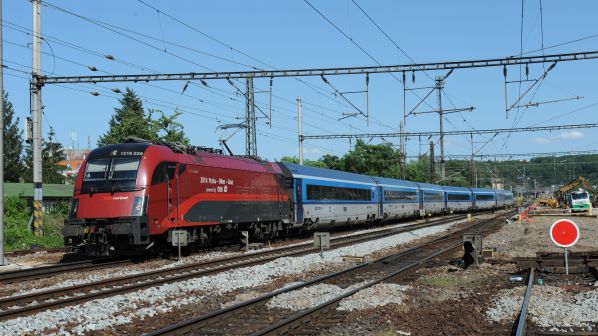CZECH infrastructure manager SŽ has signed a design contract with the MP + ov Nehvizdy 2020 consortium for the Prague East high-speed terminal, which will provide an interchange between high-speed and conventional services, as well as other public transport.
The station, which will be located about 20km east of Prague, will also serve passengers from Central Bohemia and the surrounding area, with a park and ride facility. The station is designed as an interchange to allow passenger to easily connect with other destinations such as Prague main station, with a 15 minute journey time to Prague and a 45 minute journey time to Brno.
The consortium includes Metroprojekt Praha and architect bureau ov Nehvizdy. The contract includes all preparation and approvals required ahead of the start of construction.
The signing of the contract is an important step in the implementation of the pilot phase of the Czech Republic’s high-speed network from Prague-Běchovice, a suburb on the eastern outskirts of Prague, to Poříčany.

The Czech Republic is currently in the pre-investment phase of the high-speed programme, with construction of the first pilot sections expected to start in 2025.
“The highlight of the second period of preparation, which we are in right now, is the submission of documents for the spatial planning of various sections of the high-speed lines and the approval of the finalised feasibility studies by the Central Commission of the Ministry of Transport,” SŽ director general, Mr Jiří Svoboda says.
The high-speed line is being designed and environmental impact studies are under way. Public consultation is also underway with local and regional governments, citizens and other stakeholders. Essential planning will resume as soon as the Covid-19 situation allows. “Territorial planning proceedings for individual sections of the VRT will follow, ending with the granting of territorial decisions,” Svoboda adds. “We should be able to manage all this by 2023.”
SŽ is cooperating with France and French National Railways (SNCF) on the development of the network. The next phase, due to begin in 2023, will involve receiving the necessary approvals to begin construction.
For detailed data on high-speed projects around the world, subscribe to IRJ Pro.

